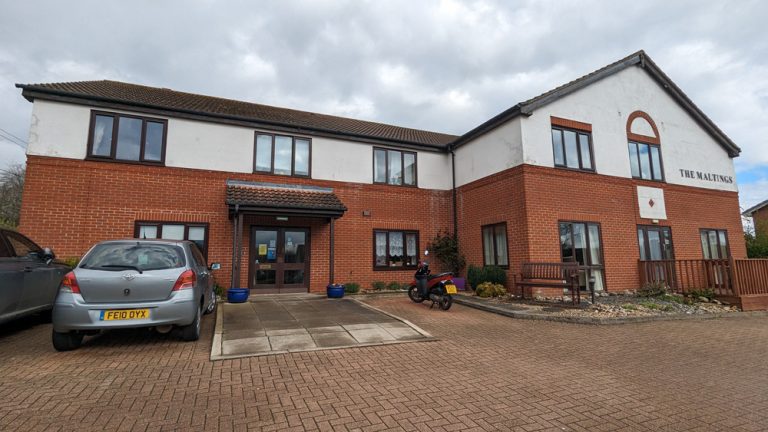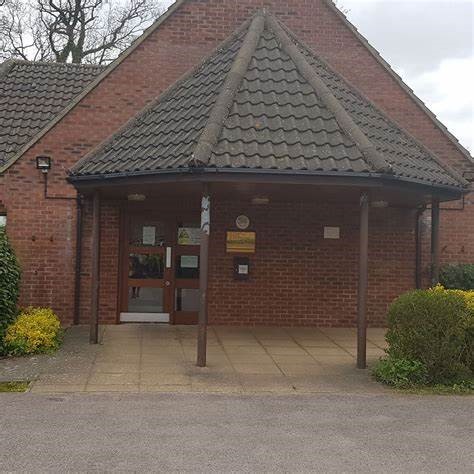Part of Healthwatch Norfolk’s work programme is to carry out Enter and View visits to health and social care services, to see and hear how people experience care. The visits are carried out by our authorised representatives. We can make recommendations or suggest ideas where we see areas for improvement.
The Health and Social Care Act allows local Healthwatch authorised representatives to observe service delivery and talk to service users, their families and carers on premises such as hospitals, residential homes, GP practices,
dental surgeries, optometrists and pharmacies.
Enter and View visits can happen if people tell us there is a problem with a service. Equally they can occur when services have a good reputation, so we can learn about and share examples of what they do well from the perspective of people who experience the service first hand.
My Views Matter
From September 2022 – March 2023, our Enter and View visits will be part of a project called ‘My Views Matter’. This project is specifically focused on residential and in-patient care for people with learning disabilities and autistic people in Norfolk. We are implementing this project in response to the tragic events at Cawston Park, in which three residents with learning disabilities died between 2018 and 2020. One of the key findings from the Safeguarding Adults Review was that residents and their families were not being listened to.
My Views Matter will involve visiting around 20 residential homes across Norfolk to find out what people with learning disabilities and autistic people, and their families, want from their residential care. It will also investigate whether residents’ and their families’ views are being taken into account in how care is delivered. The 20 homes have been selected to provide a representative sample of homes in different areas of the county, different CQC ratings, different
sizes of home, and different sizes of provider chain.
Alongside the Enter and View visits to homes, we are also interviewing family members and professionals in the sector and organizing focus groups with care home residents outside their homes. The project is being implemented with the assistance of About with Friends, NANSA (Norfolk and Norwich SEND Association), and Opening Doors.
A final report from this project, which will report on data from across the county, will be published in May 2023.
Summary of findings
During this Enter and View visit we focused on what residents thought about their care, and the degree to which they were being listened to by the home staff. All of the people we spoke to said that they were happy living at the
Mallards, and did not make any complaints. We considered the following themes, with the following findings:
Voice choice and personalisation: Regular one-to-one meetings were held between staff and residents, allowing the staff to stay up-to-date with people’s preferences and to respond to them. They also encouraged people
to try new things. There seemed to be a strong ethos of enabling people to be as independent as they could be.
Premises: The main building was mostly neat, clean and well-maintained. It had three pleasant communal spaces, a large garden and an annex with three self-contained flats for those preferring to live more independently. There were some signs of personalisation through displays on the wall and bedroom doors, though personalisation of living spaces could perhaps be increased, and some displays were cluttered.
Activities: People were very active, and were happy with the range of activities that they had to choose from. Most went on regular outings during the week, although this was limited in some cases by the amount of funding they received for staff support.
Relationships and community: Relations between staff and the people living at the Mallards seemed to be respectful, caring and close. The staff seemed to know people very well, and to know how to keep them happy and to
address any issues before they could escalate. This seemed to be very important for people’s good quality of life and the personalisation of care. There was a good sense of togetherness between residents and they were regularly out in the local community participating in various activities.
Food and health: People had a good selection of meals to choose from, and were regularly consulted about what they wanted to eat. People appeared to be in good general health, and were successfully encouraged to be
physically active where possible. They also regularly underwent annual health checks and were assisted to attend hospital appointments when necessary.
Relations with the broader health and social care system: The home has generally had a good relationship with Norfolk County Council (NCC) and local NHS services. However, there have been some problems accessing
dental care for the residents, and some problems with communications with NCC’s Integrated Quality Service.
Overall, the Mallards seemed to be a happy home, where people were cared for skillfully. People were able to lead full and contented lives, and had meaningful control over them.
Recommendations
The visit team were impressed by the caring staff team and the extent to which people had control over their lives. Our main recommendations relate to the décor of the home. Some of the noticeboards seemed to be overloaded with text-heavy documents which would be difficult for most of the residents to understand. Perhaps these noticeboards could have fewer documents on, presented in an Easy Read format. In addition, some of the other homes we have visited showed more signs of personalisation in the décor, through having more photographs and artworks on the floor which are meaningful to residents, and giving them more control over how the home is decorated.








